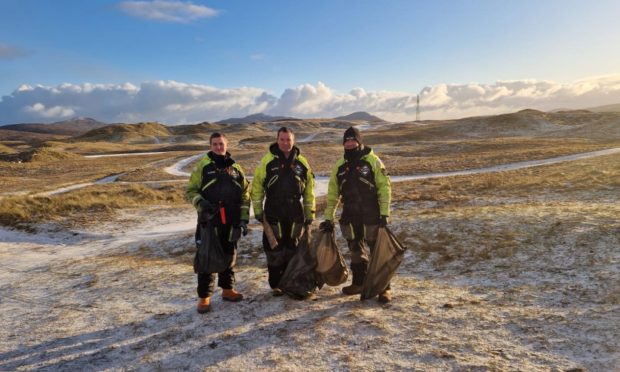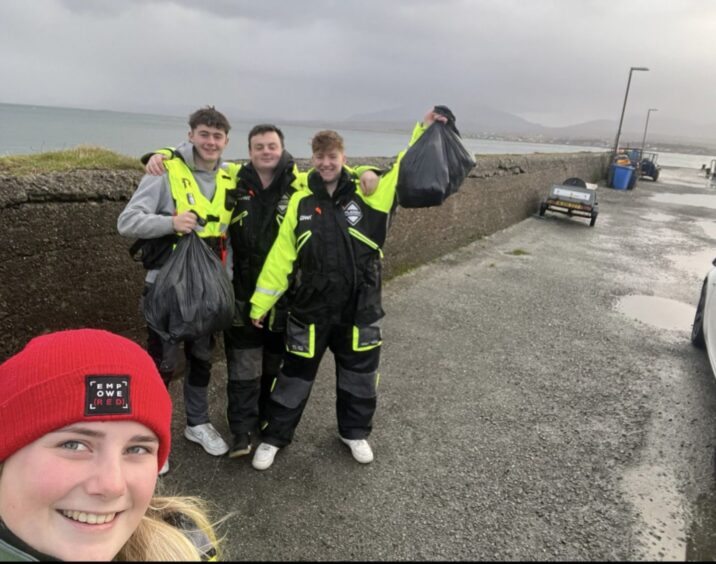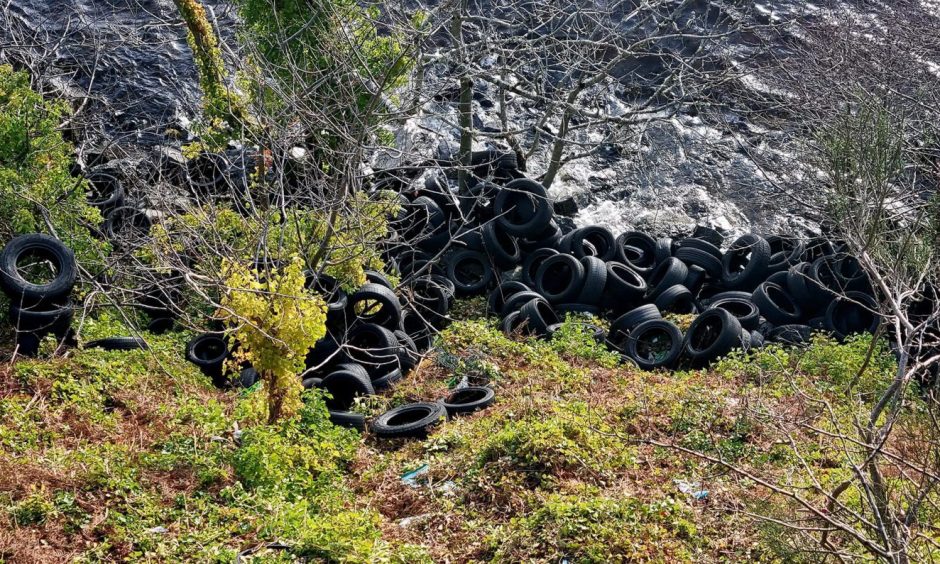Volunteers helped clear more than 23 tonnes of rubbish from beaches from Orkney to the Hebrides and Argyll in just one year.
The haul was recorded by people working with Scottish salmon farms in some of the most spectacular parts of the country for natural beauty.
Litter included some debris from the aquaculture industry but the vast majority was washed up rubbish or litter dropped by visitors.
Wet wipes…and a steering wheel
Salmon farmers, often with locals, conducted the litter picks near where they work.
Items included large volumes of non-biodegradable wet wipes and more unusual finds such as children’s toys, shoes and a steering wheel.
The total for 2023 does not include all fish farm areas so will be higher.
Figures covering five firms – Mowi Scotland, Scottish Sea Farms, Bakkafrost Scotland, Cooke Aquaculture Scotland and Loch Duart – showed that staff cleared away 23.6 tonnes of litter – around the weight of 15 cars.
The haul took about 661 hours, which equivalent to more than 80 working days.
Beaches covered the islands of Orkney, North and South Uist, Lewis, Barra, Skye, Rum, Much and Gigha.
More beaches and harbours were scoured along the north-west coast and at Loch Shiel, Loch Garry, Loch Arkaig and Loch Leven.
The biggest litter hauls
The biggest volume was at Miavaig in the Western Isles where nine tonnes was found.
A massive five tonnes was found on Gigha, three tonnes at Gravir in Western Isles and three tonnes near Gairloch in Highland.
The next largest amounts were 900kg in Loch Bracadale, Skye, and 600kg on Loch Seaforth shore, Harris.
The rest of the 50 locations recorded between just a single kg of waste on Broadford Beach, Skye, to tens or hundreds of kgs elsewhere.
One firm had been already been praised for lifting more than 100 tyres from an illegal dump by the A82 at Loch Ness in February.
The company, Mowi, used specialist vehicles to remove the fly-tipped mess near Drumnadrochit.
The wider clean up operation is part of a promise made by salmon farmers in 2020 to avoid marine debris coming from their own farms and to recover any reported items.
Salmon Scotland chief Tavish Scott said: “The vast majority of this could have been disposed of in a responsible way, but if it isn’t then it can spend decades lying on our beaches or circulating in the world’s oceans instead.
“Our salmon farmers are lucky to live and work in some of Scotland’s most stunning coastal areas, and are happy to play their part in regular beach cleans to help keep the shores clean for everyone to enjoy.”



Conversation